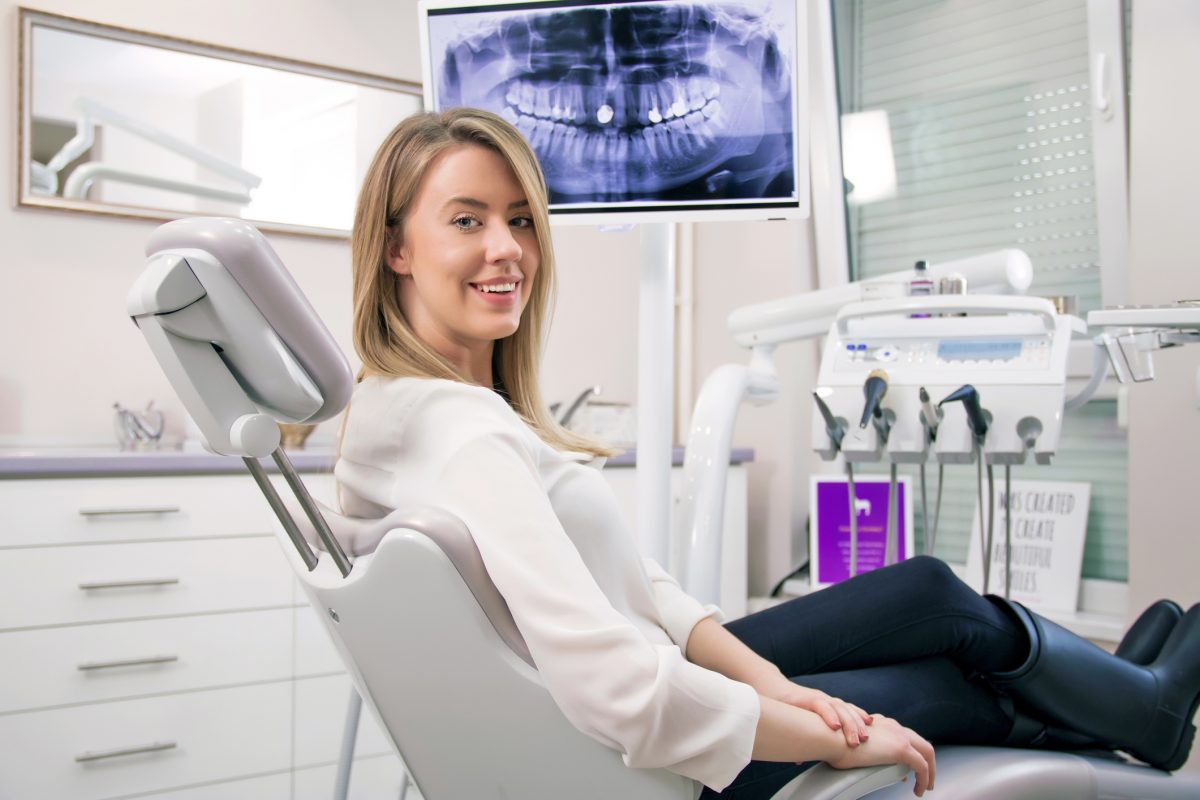Tag: dental implants litchfield
Best Value for Dental Implants in Litchfield MN
Dental implants tend to cost a lot more than alternative tooth replacement treatments such as dentures and dental bridgework. This cost can partly be attributed to the requirement of a skilled oral surgeon to perform the procedure, as opposed to a general dentist. As a surgical procedure, it also requires careful planning to eliminate any risks and ensure successful treatment. Moreover, dental implants often require additional procedures such as tooth extraction, bone grafting, sinus augmentation, crown placement, and so on depending on the position of the implant, individual treatment plan, and the patient’s general health. All of these factors add to the final cost of dental implants placement.
Generally, there is a variety in the price range for a single dental implant. This amount is distributed across service costs, cost of all components involved in the procedure, and the cost of the replacement crown.
A costly dental implant procedure may involve the following steps:
- Tooth or teeth removal – to remove any tooth fragments during site preparation.
- Bone grafting – If the implant site has signs of bone loss after tooth extraction, your oral surgeon may recommend bone grafting to build up the bone tissue and achieve a solid base to support the implant. Bone grafting in the upper jaw is known as sinus augmentation or sinus lift
- Titanium Implant placement – A titanium post will be inserted into the jaw bone using a special drill and tools, and a “healing cap” placed over the implant before stitching up the gum.
- A temporary denture will be placed at the site for aesthetic purposes during healing
- Abutment placement – It is connected to the implant using a screw
- Crown fabrication – Impression of the abutment will be obtained and sent to a dental lab to fabricate your custom crown.
- Tooth replacement – When the crown is ready, it will be secured to the abutment by cementing or with a screw.
How Much Will the Insurance Pay?
In the cost breakdown above, dental insurance providers only accept to pay for the replacement crown. This is because dental implants are considered an elective procedure by most dental insurance providers, even though it has become a standard of care for tooth replacement.
For more information on dental implants in Litchfield MN and to find out the cost of your individual treatment, please contact us today.
Types of Dental Crowns, Which To Choose in Litchfield MN
When it comes to choosing dental crowns to repair a damaged tooth, there are several dental materials that you can choose from. However, porcelain-fused-to-metal is arguably the most common material because of its unique combination of mechanical strength and aesthetic results. In addition, it’s said to be of an acceptable biologic quality that is needed for periodontal health.
That said, porcelain-metal blends may not be as readily available because their fabrication requires a high level of workmanship and the use of precious metals which have become increasingly costly. Some patients also dislike the metal framework, which may be visible when you smile depending on the tooth being restored.
As such, your dentist may recommend alternative tooth-colored materials for your custom permanent crown, such as:
- All Porcelain Crowns – Dental crowns that are fabricated entirely from porcelain are referred to as all-porcelain crowns, while those made entirely from ceramic are known as all-ceramic crowns.
- All-Resin Crowns – Dental composite resin crowns are highly affordable, but are arguably the weakest material for crowns since they’re prone to chipping, cracking, and rapid wear.
- Zirconium – Crowns made from this material are as strong and durable as metal crowns and natural-looking for an aesthetic restoration. Zirconia crowns are biocompatible and won’t cause allergic reactions, plus they can be fabricated at the dentist’s office for same-day crown restorations.
Which Crown Should You Choose?
Each dental crown material has various pros and cons that should be carefully evaluated before choosing your permanent crown restoration. You can also choose metal crowns made from gold, platinum, and alloys like nickel-chromium and cobalt-chromium for a stronger and more durable restoration. Your dentist will help you make the right choice based on your specific dental needs.
To learn more about Dental Crowns in Litchfield MN please contact us today.
Dental Implants FAQs in Litchfield MN
What happens during dental implant consultation?
During your consultation, the dentist will physically examine the gap in your mouth where you’re planning to get a dental implant placed, and also capture the necessary dental imaging including X-rays, CT scans, and/or panoramic films. These assessments check the quality and quantity of jawbone, and may influence whether you need bone grafting at the site to increase healthy bone tissue to support the implant.
Will I experience any pain during the procedure?
No. during all your surgical procedure appointments, the dental surgeon will administer a local anesthetic to numb the surgical site, as well as any sedatives that you may require to calm your anxiety and make you comfortable.
Is the tooth extraction done separately?
Tooth or teeth removal is usually the first step of your dental implant surgery. Unless you had the tooth/teeth professionally removed, there is a high likelihood that the site of the dental implant will still have some pieces of the damaged tooth present. Any tooth fragments must be completely removed to allow for proper site preparation before placing the dental implant.
Are dental implants safe?
Whenever a surgical procedure is involved, there is always an element of risk and potential complications to the success of the treatment or the patient. But the techniques used in placing dental implants have been polished for many decades. Dental implants are safe, and even considered the standard of care for replacing missing teeth.
How do you ensure a successful dental implant placement?
The 98% success rate of dental implants is attributed to careful planning, which involves making sure that the patient is healthy enough to undergo dental surgery and heal and recover properly. In addition, the dental team reviews all pertinent elements such as infections, allergies, bleeding disorders, existing medical conditions, and medications before proceeding with the treatment. Failed implants are very rare, and may occur in the unlikely event of overloading the implant, fracture of the implant, infection, damage to surrounding tissues, poor bone quality, or poor implant position. But a carefully planned procedure by a qualified dentist can help avoid all of these risks.
For more information on dental implants in Litchfield MN and to find out the cost of your individual treatment, please contact us today.
Affordable Dental Implants in Litchfield MN
Dental implants have been in use now for several decades since they were invented in 1952. In fact, many dental professionals consider them as the standard of care for tooth replacement. Though their placement involves a surgical procedure, the treatment has become largely affordable so that patients can enjoy the many benefits of dental implants, including:
So, how much will it cost you to get a dental implant?
The cost of one dental implant placement depends on a variety of factors, including the position of the implant site in the mouth, the experience of the oral surgeon performing the procedure, and the location of the dental practise. This amount accounts for the surgery for placing the implant, cost of all components involved in the procedure, and the cost of the replacement crown.
A dental implant placement procedure may involve the following:
- Tooth or teeth removal – This is usually the first step of your dental implant surgery. Any tooth fragments must be completely removed to allow for proper site preparation before placing the dental implant.
- Site preparation – If the implant site has signs of bone loss after tooth extraction, your oral surgeon may recommend bone grafting or sinus augmentation to build up the bone tissue and achieve a solid base to support the implant.
- Implant placement – When the site is ready, a dental implant (titanium post) will be placed into the bone using a special drill and tools. The surgeon will then place a “healing cap” over the implant before stitching up the gum.
- Healing – You will have to wait for 2-6 months for the site to heal and the implant to integrate with the bone tissue. A temporary denture will be placed at the site for aesthetic purposes. You will need follow-up visits for the oral surgeon to track the healing
- Abutment placement – After successful integration of the implant to the bone, an abutment will be connected to the implant using a screw. A general dentist can then take an impression of the abutment and send it to the dental lab to fabricate your custom-made crown.
- Tooth replacement – When the crown is ready, it will be secured to the abutment by cementing or with a screw. Keep in mind that the choice of material for your crown will also affect the cost of your dental implant treatment.
How much will the insurance pay?
In most cases, dental insurance does not cover dental implant placement. This is because most insurance providers consider dental implants as an elective surgical procedure, although they have become widely known as the standard of care for tooth replacement. However, some dental insurance providers cover the cost of getting a custom crown.
For more information on dental implants in Litchfield MN and to find out the cost of your individual treatment, please contact our office.
Dental Implants – Associated Costs | Litchfield MN
Many dental professionals today consider dental implants as the standard of care for tooth replacement. Yet, most dental insurance products do not cover the entire cost of dental implant placement because they consider dental implants as an elective procedure. That said, your insurance provider can cover the cost of getting a replacement crown depending on the material you choose for fabrication.
During your consultation, your dental team will discuss with you the expected treatment plan and total cost of getting dental implants. Generally, there is a variety in the price range for a single dental implant. The actual amount depends on:
- The position of the implant site in the mouth
- Experience of the oral surgeon performing the procedure
- The location of the dental practise
- Cost of the replacement crown
- Complexity of your case – affects cost of dental services and dental materials consumed
Costs Associated with Complex Dental Implants
The standard procedure for performing a dental implant includes:
- Tooth or teeth removal and site preparation before placing the dental implant.
- Implant placement – A dental implant (titanium post) is placed into the bone using a special drill and tools. The surgeon will then place a “healing cap” over the implant before stitching up the gum.
- Monitoring visits – You will have to wait for 2-6 months for the site to heal and the implant to integrate with the bone tissue. A temporary denture will be placed at the site for aesthetic purposes. You will need to visit your oral surgeon or dentist to track your recovery and make sure that there is no infection.
- Abutment placement – After successful integration of the implant to the bone, an abutment will be connected to the implant using a screw. Then an impression of the abutment is taken and sent to the dental lab to fabricate your custom crown.
- Tooth replacement – When the crown is ready, it will be secured to the abutment by cementing or with a screw.
But if the implant site has signs of bone loss after tooth extraction, your oral surgeon may recommend bone grafting or sinus augmentation to build up the bone tissue and achieve a solid base to support the implant. This takes 2-6 months to heal before you can proceed with implant placement. During this time, you will need to make regular dental visits for tracking your healing.
Get Dental Implants Today
Although dental implants are expensive, and the treatment takes several months before you can start enjoying your investment, the final result is extremely satisfying. Dental implants look, feel, and function like your natural teeth, and after treatment, you won’t need to see your dentist for follow-up visits, except for routine professional cleaning.
For more information on dental implants in Litchfield MN and to find out the cost of your individual treatment, please contact us today.
Best Candidate for Dental Implants | Litchfield MN
Dental implants refer to a biocompatible fixture that is surgically placed into the jawbone underneath an area with missing teeth, so it can fuse with the bone to provide a strong and sturdy artificial tooth root that can support the replacement tooth. Your dentist may recommend dental implant placement for a replacement tooth in order to:
- Prevent the teeth adjacent to the gap from tilting or shifting, which may misalign your bite and cause other problems
- Prevent teeth on the opposing jaw from growing irregularly because there’s no mate to make contact with, which may cause you to injure the gum tissue in that area. This can create a chronic sore spot and discomfort every time you bite
- Prevent the bone tissue under the gums from shrinking away (resorption) due to lack of stimulation during chewing, causing your face to appear aged
Benefits of Dental Implants
Dental implants offer many benefits compared to the alternatives such as dentures and bridgework, including:
- No allergic reactions – The implant is made from biocompatible materials like titanium
- Highly successful – Dental implants surgical placement has a success rate of over 98%
- Conservative restoration – Dental implants stand on their own without depending on the support of surrounding natural teeth
- Natural look and feel – Since implants integrate to the underlying bone tissue, they are so stable that they look and feel like your natural teeth.
- No changes to your lifestyle – You can continue to eat your favorite foods without any worry and practice your usual oral care routine.
If you’re considering getting a dental implant, you should visit your dentist to find out whether you’re a suitable candidate for the treatment. This will depend on the position of the missing tooth in your mouth; the quality and quantity of jawbone in the area with the gap; and your general health. But most adults can successfully get implants if the necessary preparations are made through additional dental procedures and/or a change in your lifestyle habits.
Please visit your dentist to learn more about dental implants in Litchfield MN and how they can help to restore the function and aesthetic of your mouth.
Dental Implants – An Overview | Litchfield MN
What is a bone graft?
If the implant site has signs of bone loss after tooth extraction, your dentist may place a cadaver or synthetic bone at the site in order to build up the bone tissue and achieve a solid base to support the implant. This process is referred to as alveolar bone grafting, and takes 2-6 months to heal before you can proceed with implant placement. If the site has no bone loss, the dentist may use a different bone graft, known as “onlay bone graft” that is placed above the existing jawbone. But when there is sufficient bone tissue after tooth extraction, the implant may be placed immediately without bone grafting, in a procedure known as “immediate implant” placement.
What is sinus augmentation?
Sinus augmentation or sinus lift is a procedure that involves raising the sinus floor and performing a bone graft into the sinus (where there’s a space in the skull) to ensure there’s enough bone tissue to support the implant. This procedure may be necessary if the implant site is in the upper jaw (maxilla) in the back, where the maxillary sinus is located.
Are dental implants safe?
Dental implants are safe, and even considered the standard of care for replacing missing teeth. The techniques used in placing dental implants have been polished for many decades. More importantly, the 98% success rate of dental implants is attributed to careful planning for each individual patient to ensure that you’re healthy enough to undergo dental surgery and heal and recover properly.
What factors do you consider when planning dental implant surgery?
When planning your dental implant placement surgery, your dental team will review all vital elements of your health, including infections, allergies, bleeding disorders, existing medical conditions, and current medications before proceeding with the treatment.
What happens if there are complications with the procedure?
Failed implants are very rare, and may occur in the unlikely event of overloading the implant, fracture of the implant, infection, damage to surrounding tissues, poor bone quality, or poor implant position. But a carefully planned procedure by a qualified dentist can help avoid all of these risks. Failures are so rare, they’d have to be evaluated individually for a solution.
For more information on dental implants in Litchfield MN and to find out the cost of your individual treatment, please contact us today.
Affordable Dental Implants Near Me, Litchfield MN
Dental implants are now the preferred option for replacing missing teeth because they use a conservative technique that doesn’t damage surrounding healthy teeth, like bridgework, and provides predictable results. However, getting a single dental implant carnage in prices depending on a variety of factors, including:
- The position of the implant site in the mouth
- The experience of the oral surgeon performing the procedure
- The location of the dental practice
Getting dental implants is also a lengthy process, so the cost will be distributed across the various steps including:
Tooth or Teeth Extraction
This is usually the first step of your dental implant surgery. Unless you had the tooth/teeth professionally removed, there is a high likelihood that the site of the dental implant will still have some pieces of the damaged tooth present. Any tooth fragments must be completely removed to allow for proper site preparation before placing the dental implant.
Bone Grafting / Sinus Lift
If the implant site has signs of bone loss after tooth extraction, your oral surgeon may recommend bone grafting to build up the bone tissue and achieve a solid base to support the implant. This takes 2-6 months to heal before you can proceed with implant placement.
Surgical Implant Placement
When the site is ready, a dental implant (titanium post) will be placed into the bone using a special drill and tools. The surgeon will then place a “healing cap” over the implant before stitching up the gum.
Temporary Crown
You will have to wait for 2-6 months for the site to heal and the implant to integrate with the bone tissue. A temporary denture will be placed at the site for aesthetic purposes.
Abutment Placement
After successful integration of the implant to the bone, an abutment will be connected to the implant using a screw.
Crown Fabrication
A general dentist can then take an impression of the abutment and send it to the dental lab to fabricate your custom-made crown. Keep in mind that the choice of material for your crown will also affect the cost of your dental implant treatment.
Tooth Replacement – When the crown is ready, it will be secured to the abutment by cementing or with a screw
For more information on dental implants in Litchfield MN and to find out the cost of your individual treatment, please contact us today.
Tooth Implant Process in Litchfield MN
What tests are carried out during dental implant consultation?
1. Physical examination – The dentist will physically examine the gap in your mouth where you’re planning to get a dental implant placed
2. Digital imaging – X-rays, CT scans, and/or panoramic films are required to assess the quality and quantity of jawbone
3. Medical history review – Your dentist will also review your medical history by assessing any infections, allergies, bleeding disorders, existing medical conditions, and medications before proceeding with the treatment.
How do you manage pain during the procedure?
During all your surgical procedure appointments, the dental surgeon will administer a local anesthetic to numb the surgical site, as well as any sedatives that you may require to calm your anxiety and make you comfortable.
Can I switch from another tooth replacement to dental implants?
The other tooth replacement options are dental bridgework and removable dentures. Dental bridgework is a permanent restoration that should serve you satisfactorily for many years. But if your removable dentures keep slipping due to a poor fit, then you may consider getting implant-supported dentures to improve their stability.
If the implant site has signs of bone loss after tooth extraction, your dentist may recommend bone grafting to build up the bone tissue and achieve a solid base to support the implant. If grafting is to be done in the upper jaw at the back where the sinus cavity is located, the procedure is known as sinus augmentation. Bone grafting takes 2-6 months to heal before you can proceed with implant placement.
Can problems occur during implant placement?
The 98% success rate of dental implants is attributed to careful planning, which involves making sure that the patient is healthy enough to undergo dental surgery and heal and recover properly. But whenever a surgical procedure is involved, there is always an element of risk and potential complications to the success of the treatment or the patient. Your dentist will work with you to ensure a safe and successful procedure.
For more information on dental implants in Litchfield MN and to find out the cost of your individual treatment, please contact us today.
Reasons to Visit a Dental Implant Dentist Near Me | Litchfield MN
When it comes to repairing your smile after tooth loss, it is important that you work with a quality dental implant dentist in Litchfield MN with multiple options to help you attain the smile of your dreams. Dental implants provide one of the best ways to permanently replace missing teeth and restore the optimal function and beauty of your mouth.
An Artificial Tooth that Feels Natural
Dental implants are a permanent solution for restoring missing teeth that involves the surgical placement of a small titanium post that will bond to the jaw bone. The implant provides a strong anchor for the custom-made crown that will be placed above the gums to fill the gap. This post acts as a tooth root, so it continues to stimulate the jawbone just like your natural tooth. This, in turn, helps to retain your natural face structure and prevents premature aging.
Other benefits of dental implants in Litchfield MN include:
- Dental implants fit into your mouth like a natural tooth because they’re anchored into your jaw bone, so they feel and function like your original teeth
- Permanent, long-term tooth replacement solution that should last a lifetime with proper maintenance
- Easier to speak, eat, and maintain oral hygiene – Implants allow you to bite and chew your favorite foods without fear of the replacement tooth/teeth slipping or falling out of place.
- They don’t require any special cleaning or hygiene practices. You simply brush and floss like your other teeth
- Protects healthy teeth and bone – Dental implants are standalone, meaning that they need to be supported by adjacent teeth. In fact, they fill a gap and prevent adjacent teeth from shifting, which helps to maintain proper structure and function.
Am I a Candidate for Dental Implants?
Dental implants can be used to replace one or more missing teeth, either alone or with dentures. Some additional procedures may be necessary to provide sufficient bone material to bond with the titanium post, like bone grafting. Please visit your dental implant dentist in Litchfield MN to discuss your case and candidature for dental implants.

6 Month Smiles
Six Month Smiles is a short term orthodontic treatment that involves wearing clear braces to straighten and improve tooth alignment. This alternative treatment is a convenient approach to a straighter smile without the time commitment.
Learn more










